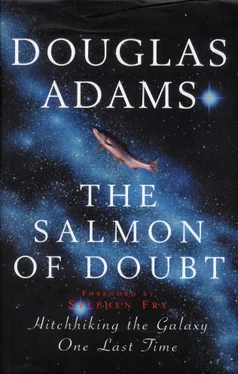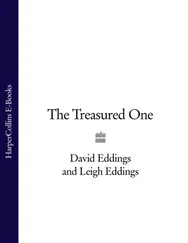I was thinking about this earlier today when Larry Yaeger was talking about “What Is Life?” and mentioned at the end something I didn’t know, about a special field of handwriting recognition. The following strange thought went through my mind: that trying to figure out what is life and what isn’t, and where the boundary is, has an interesting relationship with how you recognise handwriting. We all know, when presented with any particular entity, whether it’s a bit of mould from the fridge or whatever—we instinctively know when something is an example of life and when it isn’t. But it turns out to be tremendously hard exactly to define it. I remember once, a long time ago, needing a definition of life for a speech I was giving. Assuming there was a simple one and looking around the Internet, I was astonished at how diverse the definitions were and how very, very detailed each one had to be in order to include
“this” but not include “that.” If you think about it, a collection that includes a fruit fly and Richard Dawkins and the Great Barrier Reef is an awkward set of objects to try to compare. When we try to figure out what the rules are that we are looking for, trying to find a rule that’s self-evidently true, that turns out to be very, very hard.
Compare this with the business of recognising whether something is an A or a B or a C. It’s a similar kind of process, but it’s also a very, very different process, because you may say of something that you’re “not quite certain whether it count as life or not life, it’s kind of there on the edge, isn’t it, it’s probably a very low example of what you might call life, it’s maybe just about alive or maybe it isn’t.” Or maybe you might say about something that’s an example of digital life, “Does that count as being alive?”
Is it something, to coin someone’s earlier phrase, that’ll go squish if you step on it? Think about the controversial Gaia hypothesis; people say, “Is the planet alive?” “Is the ecosphere alive or not?” In the end it depends on how you define such things. Compare that with handwriting recognition. In the end you are trying to say “Is this an A or is it a B?” People write As at Bs in many different ways; floridly, sloppily, or whatever. Its no good saying, “Well, it’s sort of A-ish but there’s a bit of B in there,” because you can’t write the word “apple” with such a thing. It is either an A or a B. How do you judge? If you’re doing handwriting recognition, what you are trying to do is not to assess the relative degrees of A-ness or B-ness of the letter but trying to define the intention of the person who wrote it. It’s very clear in the end—is it an A or a B?—ah! it’s an because the person writing it was writing the word “apple” and that’s clearly what it means. So, in the end, in the absence of an intentional creator, you cannot say what life is, because it simply depends on what set of definitions you include in your overall definition. Without a god, life is only a matter of opinion. I want to pick up on a few other things that came around today. I was fascinated by Larry (again), talking about tautology, because there’s an argument that I remember being stumped by once, to which I couldn’t come up with a reply, because I was so puzzled by the challenge and couldn’t quite figure it out. A guy said to me, “Yes, but the whole theory of evolution is based on a tautology: Where does the idea of God come from? Well, I think we have a very skewed point of view on an awful lot of things, but let’s try to see where our point of view comes from. Imagine early man. Early man is, like everything else, an evolved creature and he finds himself in a world that he’s begun to take a little charge of; he’s begun to be a toolmaker, a changer of his environment with the tools that he’s made, and he makes tools when he does, in order to make changes in his environment. To give an example of the way man operates compared to other animals, consider speciation, which, as we know, tends to occur when a small group of animals gets separated from the rest of the herd by some geological upheaval, population pressure, food shortage, or whatever, and finds itself in a new environment with maybe something different going on. Take a very simple example; maybe a bunch of animals suddenly finds itself in a place where the weather is rather colder. We know that in a few generations those genes that favour a thicker coat will has come to the fore and we’ll come and we’ll find that the animals have now got thicker coats. Early man, who’s a toolmaker, doesn’t have to do this: he can inhabit an extraordinarily wide range of habitats on earth, from tundra to the Gobi Desert—he even manages to live in New York, for heaven’s sake—and reason is that when he arrives in a new environment he doesn’t have to wait for several generations; if he arrives in a colder environment and sees an animal that has those genes which favour a thicker coat, he says, “I’ll have it off him.” Tools have enabled us to think intentionally, to make things and to do things to create a world that fits us better. Now imagine an early man surveying his surroundings at the end of a happy day’s toolmaking. He looks around and he sees a world that pleases him mightily; behind him are mountains with caves in them—mountains are great because you can go and hide in the caves and you are out of the rain and the bears can’t get you; in front of him there’s the forest—it’s got nuts and berries and delicious food; there’s a stream going by, which is full of water—water’s delicious to drink, you can float your boats in it and do all sorts of stuff with it; here’s cousin Ug and he’s caught a mammoth—mammoths are great, you can eat them, you can wear their coats, you can use their bones to create weapons to catch other mammoths. I mean this is a great world, it’s fantastic. But our early man has a moment to reflect and he thinks to himself, “Well, this is an interesting world that I find myself in,” and then he asks himself a very treacherous question, a question that is totally meaningless and fallacious, but only comes about because of the nature of the sort of person he is, the sort of person he has evolved into, and the sort of person who has thrived because he thinks this particular way. Man the maker looks at his world and says, “So who made this, then?” Who made this?—you can see why it’s a treacherous question. Early man thinks, “Well, because there’s only one sort of being I know about who makes things, whoever made all this must therefore be a much bigger, much more powerful and necessarily invisible, one of me, and because I tend to be the strong one who does all the stuff, he’s probably male.” And so we have the idea of a God. Then, because when we make things, we do it with the intention of doing something with them, early man asks himself, “If he made it, what did he make it for?” Now the real trap springs, because early man is thinking, “This world fits me very well. Here are all these things that support me and feed me and look after me; yes, this world fits me nicely,” and he reaches the inescapable conclusion that whoever made it, made it for him. This is rather as if you imagine a puddle waking up one morning and thinking, “This is an interesting world I find myself in—an interesting hole I find myself in—fits me rather neatly, doesn’t it? In fact it fits me staggeringly well, must have been made to have me in it!” This is such a powerful idea that as the sun rises in the sky and the air heats up and as, gradually, the puddle gets smaller and smaller, it’s still frantically hanging on to the notion that everything’s going to be all right, because this world was meant to have him in it, was built to have him in it; so the moment he disappears catches him rathejf by surprise. I think this may be something we need to be on the watch-out for. We all know that at some point in the future the universe will come to an end, and at some other point, considerably in advance from that but still not immediately pressing, the sun will explode. We feel there’s plenty of time to worry about that, but on the other hand that’s a very dangerous thing to say. Look at what’s supposed to be going to happen on first of January
Читать дальше










